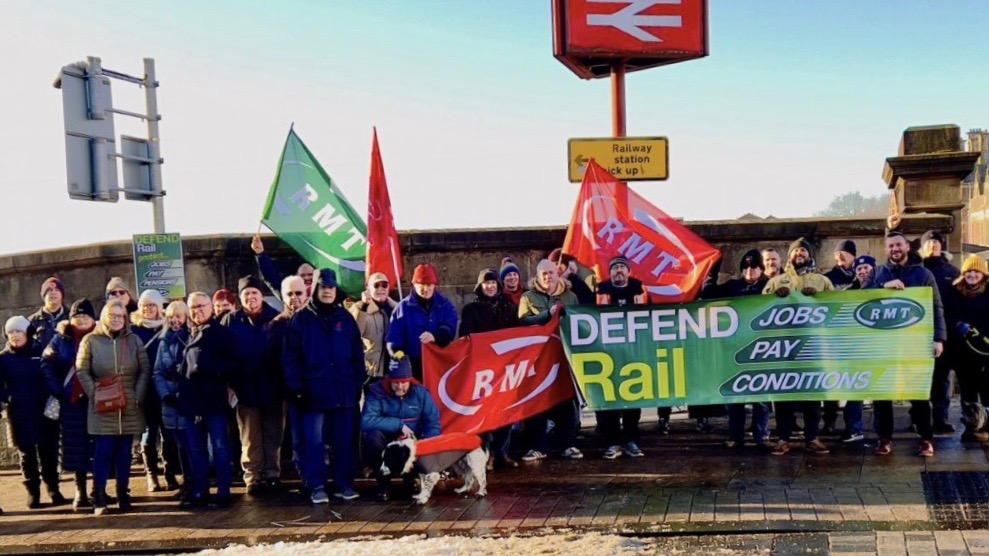Rail workers across the UK, under the leadership of the National Union of Rail, Maritime, and Transport Workers (RMT), have begun striking again in protest against the insufficient pay offer proposed by rail authorities. The workers went on strike on December 13 and 14 and will continue action on December 16 and 17.
Around 40,000 members of the RMT have joined the strike. Following a union vote in which 63.6% of its membership voted to reject Network Rail’s pay offer of a 5% retrospective rise for 2022 and a 4% pay rise in 2023. Workers at 14 train-operating companies are striking in the UK. More actions have been announced for the Christmas week as well. Workers will again step up action in the first week of January 2023.
Following the actions on December 13 and 14, RMT General Secretary Mick Lynch said that “this [was] a huge rejection of Network Rail’s substandard offer” and showed that members were “determined to take further strike action in pursuit of a negotiated settlement.” He said that union members “along with the entire trade union movement [would] continue their campaign for a square deal for workers, decent pay increases, and good working conditions.”
Union leadership has accused the Tory government and rail authorities of “refusing to lift a finger to prevent these strikes” and suggested that at the same time, the government wants “to make effective strike action illegal in Britain.”
The government passed a controversial piece of legislation, the Conduct of Employment Agencies and Employment Businesses (Amendment) Regulations 2022, in July this year. Workers had termed the legislation “the Scab’s Charter” as it calls for workers who take industrial action to be penalized and allows for the hiring of temporary agency workers to replace strikers.
Unions including the RMT have been at the forefront of the struggle against the ongoing cost of living crisis in the country. Costs of essentials such as fuel, energy, and food have been going up as inflation soars.
Major mainstream media outlets in the country have waged a vicious campaign against the RMT and its leadership as well as against other unions in an effort to malign workers’ strikes and union activities.
RMT’s Mick Lynch has raised sharp criticism of such media houses, including the BBC, which he said has demonizes workers but never criticizes the super rich, who are actually profiting from the crisis. He accused the BBC of “not showing any admiration for the fight that working people” were engaged in.





